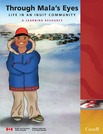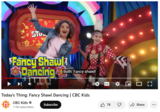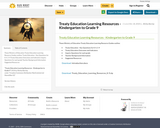This series of lesson plans, built around the first-person narrative of a 12-year-old Inuk boy, will help you and your students appreciate life in the Inuit community of Salluit, in the northern part of Nunavik, Northern Quebec. Although designed for students from 9 to 12 years of age, some of the lesson plans and strategies in this unit can be adapted for other grade levels. Suggested activities and lists of research resources offer exciting and engaging opportunities to learn more about the history, customs and traditions of Inuit in Canada.
The aim of this booklet is to enhance the knowledge of students about the history, cultures and traditions of Inuit and, in particular, those who live in Canada's northern Inuit community of Salluit.
By completing the lessons in this booklet, students will be able to:
- express an appreciation for the strong traditions and unique culture of the Inuit people, in various ways
- describe the various developments that affected Canada's Arctic from its early history to the present
- locate the community of Salluit and its neighbouring Inuit municipalities on a map of Canada
- relate the similarities and differences between life in Salluit and life in their own community.
Through Mala's Eyes...Life in an Inuit Community offers educators opportunities to address provincial learning outcomes in the social studies, history and geography portions of their curriculum. Given the nature of the suggested activities, students will also address learning outcomes in language, the arts and mathematics.
*Audio recordings of student readings are available through the website, but are not hyperlinked in the pdf document.
*With some slight adaptations, this unit can be completed without technology.



